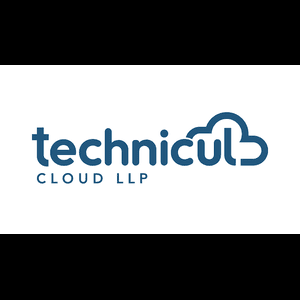ERP for Agriculture Universities: Revolutionizing Academic and Farm Management
In today’s data-driven world, educational institutions are rapidly embracing technology to streamline operations and enhance productivity. Agriculture universities, in particular, face unique challenges — from managing research farms and laboratories to coordinating academic, administrative, and extension activities. This is where an ERP (Enterprise Resource Planning) system for Agriculture Universities plays a pivotal role.
What is an ERP for Agriculture Universities?
An ERP (Enterprise Resource Planning) system is an integrated software solution designed to manage all the core processes of an institution — including academics, administration, finance, research, and farm management — through a unified digital platform.
In agriculture universities, ERP solutions go beyond traditional education management. They integrate academic workflows with agricultural operations, such as farm resource tracking, livestock management, seed inventory, soil analysis data, and research project management, offering a holistic view of the university’s ecosystem.
Key Features of ERP for Agriculture Universities
Academic Management
Automated admissions and enrollment processes.
Curriculum and timetable planning.
Attendance and grading systems.
Online learning integration and e-assessments.
Research and Farm Management
Track crop cycles, field data, irrigation schedules, and soil health.
Manage livestock breeding, feeding, and health records.
Monitor greenhouse and farm equipment usage.
Record and analyze agricultural research outcomes.
Student and Faculty Management
Centralized student profiles with academic, research, and extracurricular records.
Faculty workload management, performance tracking, and publication records.
Online collaboration tools for research and extension programs.
Finance and Inventory Control
Budget planning and fund allocation for academic and farm departments.
Procurement, billing, and asset management.
Real-time financial reporting and audit-ready documentation.
Extension and Outreach Programs
Digital platform for farmer training programs and workshops.
Manage demonstration farms and community outreach initiatives.
Online registration and certification for extension courses.
Data Analytics and Reporting
Real-time dashboards for institutional decision-making.
Data-driven insights into crop performance, research productivity, and student outcomes.
Predictive analytics for better farm and academic planning.
Benefits of ERP Implementation in Agriculture Universities
Enhanced Efficiency – ERP eliminates redundant manual work, enabling seamless coordination between academic, research, and administrative units.
Better Farm Productivity – Digital monitoring of crops, livestock, and resources enhances yield and reduces wastage.
Improved Decision-Making – With centralized data analytics, administrators and researchers can make informed decisions faster.
Transparency and Compliance – Streamlined financial and operational records support audits and accreditation processes.
Student-Centric Experience – Students gain easier access to academic records, farm data, and research collaborations.
Sustainability and Innovation – By digitizing agricultural processes, ERP promotes eco-friendly and efficient farm management.
How ERP Transforms Agricultural Education and Research
Agriculture universities don’t just teach — they innovate, research, and extend their knowledge to the farming community. ERP systems bridge the gap between academic theory and practical farm application by integrating research data, field experiments, and educational outcomes within one platform.
With modules designed specifically for agricultural education, ERP enables:
Tracking of field trials and research projects.
Real-time collaboration between students, researchers, and farmers.
Integration of IoT and GIS technologies for precision farming.
Data sharing for sustainable agriculture research.
Why Choose a Specialized ERP for Agriculture Universities?
Generic ERPs often fall short of addressing the complexities of agricultural education. A specialized ERP for Agriculture Universities includes modules tailored for:
Crop and livestock management.
Farm machinery maintenance scheduling.
Laboratory and seed bank inventory.
Extension program tracking and farmer outreach.
By aligning technology with the agricultural ecosystem, such ERPs empower universities to enhance academic excellence, operational efficiency, and agricultural innovation.
In today’s data-driven world, educational institutions are rapidly embracing technology to streamline operations and enhance productivity. Agriculture universities, in particular, face unique challenges — from managing research farms and laboratories to coordinating academic, administrative, and extension activities. This is where an ERP (Enterprise Resource Planning) system for Agriculture Universities plays a pivotal role.
What is an ERP for Agriculture Universities?
An ERP (Enterprise Resource Planning) system is an integrated software solution designed to manage all the core processes of an institution — including academics, administration, finance, research, and farm management — through a unified digital platform.
In agriculture universities, ERP solutions go beyond traditional education management. They integrate academic workflows with agricultural operations, such as farm resource tracking, livestock management, seed inventory, soil analysis data, and research project management, offering a holistic view of the university’s ecosystem.
Key Features of ERP for Agriculture Universities
Academic Management
Automated admissions and enrollment processes.
Curriculum and timetable planning.
Attendance and grading systems.
Online learning integration and e-assessments.
Research and Farm Management
Track crop cycles, field data, irrigation schedules, and soil health.
Manage livestock breeding, feeding, and health records.
Monitor greenhouse and farm equipment usage.
Record and analyze agricultural research outcomes.
Student and Faculty Management
Centralized student profiles with academic, research, and extracurricular records.
Faculty workload management, performance tracking, and publication records.
Online collaboration tools for research and extension programs.
Finance and Inventory Control
Budget planning and fund allocation for academic and farm departments.
Procurement, billing, and asset management.
Real-time financial reporting and audit-ready documentation.
Extension and Outreach Programs
Digital platform for farmer training programs and workshops.
Manage demonstration farms and community outreach initiatives.
Online registration and certification for extension courses.
Data Analytics and Reporting
Real-time dashboards for institutional decision-making.
Data-driven insights into crop performance, research productivity, and student outcomes.
Predictive analytics for better farm and academic planning.
Benefits of ERP Implementation in Agriculture Universities
Enhanced Efficiency – ERP eliminates redundant manual work, enabling seamless coordination between academic, research, and administrative units.
Better Farm Productivity – Digital monitoring of crops, livestock, and resources enhances yield and reduces wastage.
Improved Decision-Making – With centralized data analytics, administrators and researchers can make informed decisions faster.
Transparency and Compliance – Streamlined financial and operational records support audits and accreditation processes.
Student-Centric Experience – Students gain easier access to academic records, farm data, and research collaborations.
Sustainability and Innovation – By digitizing agricultural processes, ERP promotes eco-friendly and efficient farm management.
How ERP Transforms Agricultural Education and Research
Agriculture universities don’t just teach — they innovate, research, and extend their knowledge to the farming community. ERP systems bridge the gap between academic theory and practical farm application by integrating research data, field experiments, and educational outcomes within one platform.
With modules designed specifically for agricultural education, ERP enables:
Tracking of field trials and research projects.
Real-time collaboration between students, researchers, and farmers.
Integration of IoT and GIS technologies for precision farming.
Data sharing for sustainable agriculture research.
Why Choose a Specialized ERP for Agriculture Universities?
Generic ERPs often fall short of addressing the complexities of agricultural education. A specialized ERP for Agriculture Universities includes modules tailored for:
Crop and livestock management.
Farm machinery maintenance scheduling.
Laboratory and seed bank inventory.
Extension program tracking and farmer outreach.
By aligning technology with the agricultural ecosystem, such ERPs empower universities to enhance academic excellence, operational efficiency, and agricultural innovation.
ERP for Agriculture Universities: Revolutionizing Academic and Farm Management
In today’s data-driven world, educational institutions are rapidly embracing technology to streamline operations and enhance productivity. Agriculture universities, in particular, face unique challenges — from managing research farms and laboratories to coordinating academic, administrative, and extension activities. This is where an ERP (Enterprise Resource Planning) system for Agriculture Universities plays a pivotal role.
What is an ERP for Agriculture Universities?
An ERP (Enterprise Resource Planning) system is an integrated software solution designed to manage all the core processes of an institution — including academics, administration, finance, research, and farm management — through a unified digital platform.
In agriculture universities, ERP solutions go beyond traditional education management. They integrate academic workflows with agricultural operations, such as farm resource tracking, livestock management, seed inventory, soil analysis data, and research project management, offering a holistic view of the university’s ecosystem.
Key Features of ERP for Agriculture Universities
Academic Management
Automated admissions and enrollment processes.
Curriculum and timetable planning.
Attendance and grading systems.
Online learning integration and e-assessments.
Research and Farm Management
Track crop cycles, field data, irrigation schedules, and soil health.
Manage livestock breeding, feeding, and health records.
Monitor greenhouse and farm equipment usage.
Record and analyze agricultural research outcomes.
Student and Faculty Management
Centralized student profiles with academic, research, and extracurricular records.
Faculty workload management, performance tracking, and publication records.
Online collaboration tools for research and extension programs.
Finance and Inventory Control
Budget planning and fund allocation for academic and farm departments.
Procurement, billing, and asset management.
Real-time financial reporting and audit-ready documentation.
Extension and Outreach Programs
Digital platform for farmer training programs and workshops.
Manage demonstration farms and community outreach initiatives.
Online registration and certification for extension courses.
Data Analytics and Reporting
Real-time dashboards for institutional decision-making.
Data-driven insights into crop performance, research productivity, and student outcomes.
Predictive analytics for better farm and academic planning.
Benefits of ERP Implementation in Agriculture Universities
Enhanced Efficiency – ERP eliminates redundant manual work, enabling seamless coordination between academic, research, and administrative units.
Better Farm Productivity – Digital monitoring of crops, livestock, and resources enhances yield and reduces wastage.
Improved Decision-Making – With centralized data analytics, administrators and researchers can make informed decisions faster.
Transparency and Compliance – Streamlined financial and operational records support audits and accreditation processes.
Student-Centric Experience – Students gain easier access to academic records, farm data, and research collaborations.
Sustainability and Innovation – By digitizing agricultural processes, ERP promotes eco-friendly and efficient farm management.
How ERP Transforms Agricultural Education and Research
Agriculture universities don’t just teach — they innovate, research, and extend their knowledge to the farming community. ERP systems bridge the gap between academic theory and practical farm application by integrating research data, field experiments, and educational outcomes within one platform.
With modules designed specifically for agricultural education, ERP enables:
Tracking of field trials and research projects.
Real-time collaboration between students, researchers, and farmers.
Integration of IoT and GIS technologies for precision farming.
Data sharing for sustainable agriculture research.
Why Choose a Specialized ERP for Agriculture Universities?
Generic ERPs often fall short of addressing the complexities of agricultural education. A specialized ERP for Agriculture Universities includes modules tailored for:
Crop and livestock management.
Farm machinery maintenance scheduling.
Laboratory and seed bank inventory.
Extension program tracking and farmer outreach.
By aligning technology with the agricultural ecosystem, such ERPs empower universities to enhance academic excellence, operational efficiency, and agricultural innovation.
0 Kommentare
0 Geteilt
54 Ansichten
0 Bewertungen







